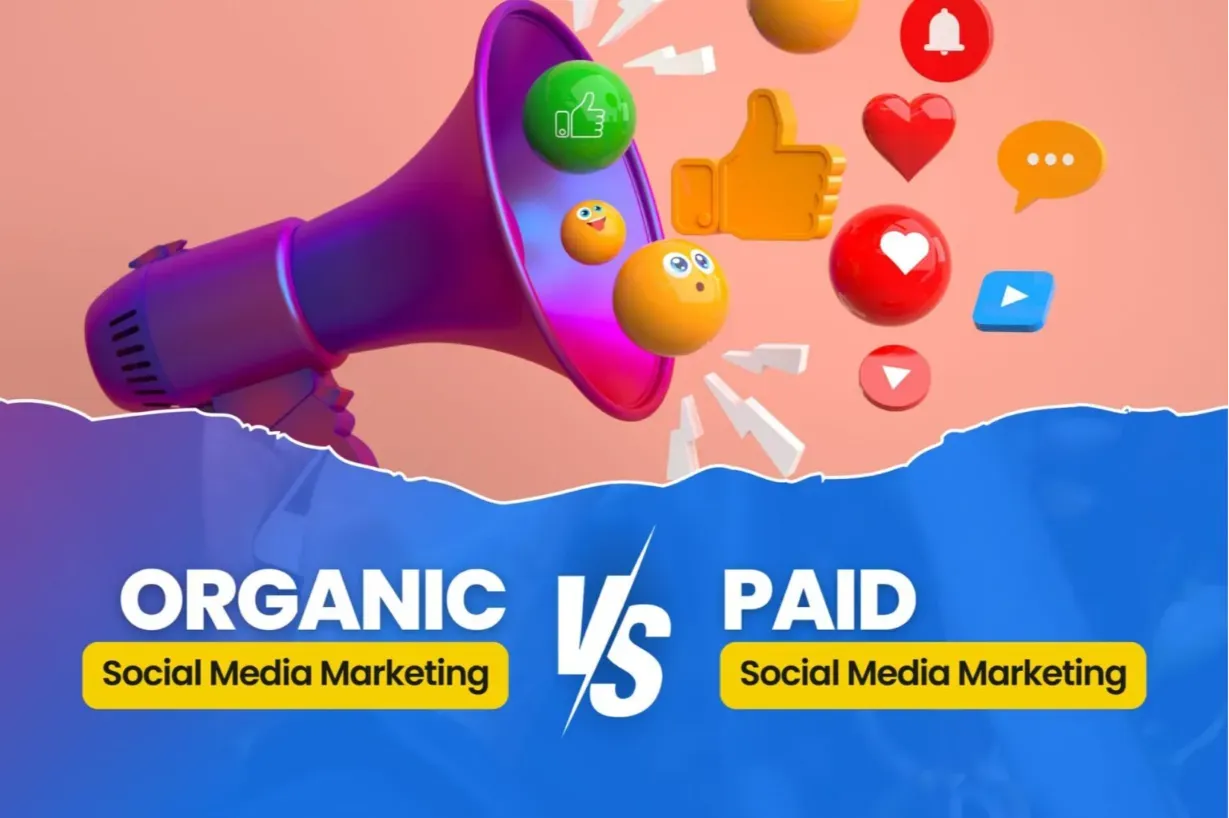Organic social media and paid social marketing are two essential concepts in the fast-changing world of social media marketing. Understanding the differences and the unique benefits of each approach is crucial for achieving marketing success. This article explores the intricacies of both organic and paid social media, helping you determine which strategy is best suited for your marketing goals.
Introduction To Organic Social Media Marketing
What Is Organic Social Media Marketing?
Organic social media marketing refers to unpaid content that businesses and brands create and share on their social media feeds. Users share this content without any cost, and account managers or brands do not manage it. Organic content is designed to foster genuine relationships between the brand and its followers, encouraging authentic engagement. By expressing their values and culture freely, brands can build trust and loyalty among their followers, enhancing their credibility and fostering long-term relationships.
Advantages Organic social media marketing
One significant advantage of organic social media marketing is its cost-effectiveness. It allows businesses to communicate with their audiences for free. This makes it an ideal low-cost option for new firms and small businesses. Organic social media promotes natural interactions such as likes, comments, shares, and direct messages. These interactions indicate genuine interest from the audience. This approach helps create a community of engaged followers who feel a sense of affiliation with the brand. Regular interaction with followers through posts and discussions strengthens this bond, making organic social media a powerful tool for building a loyal customer base.
Introduction To Paid Social Media Marketing
What Is Paid Social Media Marketing?
Paid social media marketing involves marketing content by paying for it to be advertised on various social network sites. This includes advertisement integrations, banner ads, video ads, and other forms of paid placements. Paid social media allows brands to target specific audience profiles, geographical regions, and usage patterns, ensuring that the content reaches the right people.
Advantages Of Paid Social Media Marketing
Paid social media marketing offers several key advantages. Firstly, it enhances reach and visibility, significantly increasing the discoverability of your content and attracting more visitors to your site. Paid ads provide far-reaching coverage compared to organic posts, thereby boosting brand awareness. Secondly, targeted marketing allows businesses to address multiple segments of their client base with precision. By targeting specific demographics such as age, gender, interests, and behavior patterns, businesses can ensure their ads are seen by the right audience. Lastly, measurable results are a major benefit of promoting social media. Advertisers have access to real-time analytics, enabling them to track changes and calculate the return on investment of their campaigns. This data-driven approach allows for continuous optimization of marketing strategies, ensuring maximum effectiveness.
Combining Organic And Paid Social Media Marketing
Combining organic and paid social media marketing strategies offers a comprehensive approach to social media management. By integrating both methods, businesses can harness the strengths of each: organic content builds trust and loyalty, while paid campaigns enhance reach and virality. Cross-promotion is key; sharing paid campaigns on your organic feed can help more people discover them, and vice versa, boosting overall engagement. A balanced approach is crucial; allocate resources between organic and paid efforts based on your goals and audience characteristics, and adjust your strategy regularly based on performance. This integrated strategy maximizes the effectiveness of your social media presence and ensures a broader, more engaged audience.
Conclusion:
In conclusion, leveraging organic social media marketing and paid social media marketing effectively requires a strategic approach and SMM Experts can help you with that. Consistency in posting, engaging actively with your audience, and offering diverse and relevant content can significantly enhance your organic reach. On the other hand, paid social marketing demands clear objectives, high-quality visuals, and continuous performance analysis to optimize results. By integrating these best practices, businesses can build a strong, engaged community while achieving their marketing goals, ultimately driving brand growth and customer loyalty.
By leveraging the benefits of organic and paid social media, businesses can craft a balanced strategy. This approach addresses immediate marketing needs and fosters long-term relationships. Whether focusing on cost-effective engagement or targeted reach, the combined power of both methods will help meet and exceed marketing goals.

